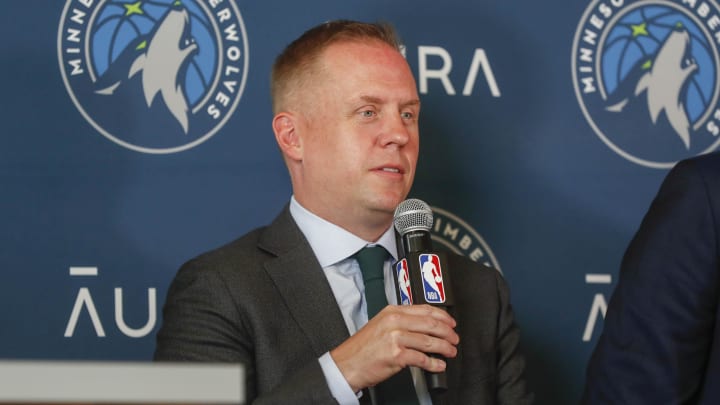Timberwolves' options limited as NBA salary cap is officially set

The Timberwolves are carrying a heavy payroll into the 2024 season, and another reminder of that came when the NBA salary cap numbers were officially revealed on Sunday.
The salary cap this season will be $140,588,000, slightly below the $141 million cap projection for the season. The luxury tax is set at $170,814,000 with the first apron set at $178,132,000 and the second apron at $188,931,000. The Timberwolves are currently well above the second apron.
:
— Adrian Wojnarowski (@wojespn) June 30, 2024
New NBA salary cap is $140,588,00
Luxury Tax: $170,814,000
First Apron: $178,132,000
Second Apron: $188,931,000
As it stands after the NBA draft, the Timberwolves are already carrying over $190 million in player salaries, which would position them well above the second apron. And that’s before they’ll look to fill out the remainder of the roster with the free agency negotiation period beginning Sunday. A hefty luxury tax bill is coming amid an uncertain ownership situation for the Wolves.
Rising above the second apron also limits the Timberwolves options as they look to build out the roster in free agency. They will no longer have access to the mid-level exception, which that exceed the tax will use to add free agents with salaries larger than the veteran minimum.
So as the Wolves look to finish out the roster beginning with Sunday’s start of free agency, they’ll only be able to sign players to veteran minimum contracts. They Wolves can, however, retain the services of free agents on the roster — like Kyle Anderson, Monte Morris and Jordan McLaughlin — while continuing to go over the tax via the Bird Rights. The Wolves currently have 11 players on the roster.
In addition to the limitations in free agency, rising above the second apron will also limit the Wolves’ ability to improve the team via trade. When rising above the second apron, teams cannot take on any additional salary in trades. They are also not allowed to include any cash in trades, and if they remain above the second apron for multiple seasons, teams can be restricted from trading future draft picks.
Fortunately for the Timberwolves, they have the core of their roster intact. Ownership — whoever it ends up being — has seemed to show a willingness to pay the tax with Minnesota being a championship contender. But the Wolves will still have to navigate the challenges of the second apron as they look to finish out the roster with players who can help them get over the hump.
